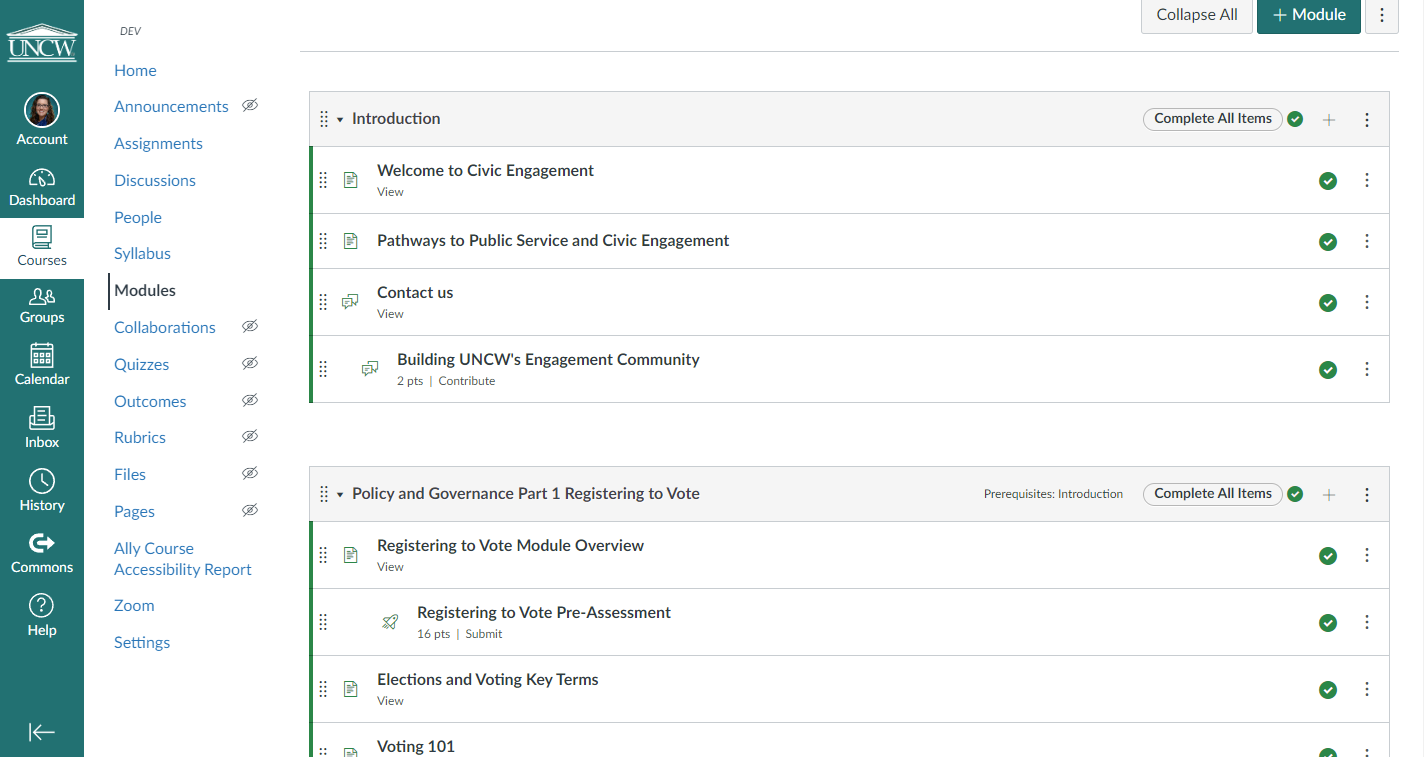NC Collegiate Civics Project
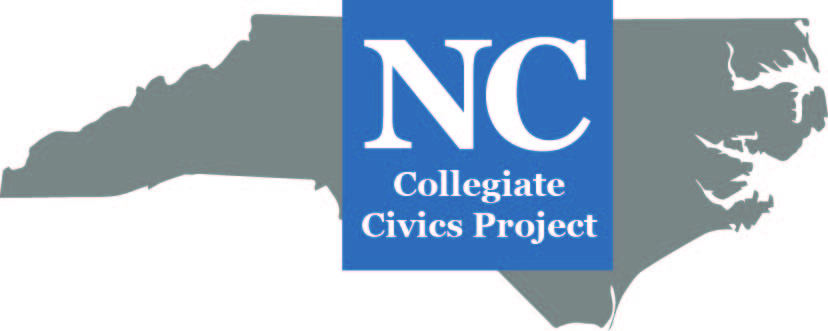

In summer 2020, NC Campus Engagement received funding from the Z. Smith Reynolds Foundation to launch the NC Collegiate Civics Project (NC-CCP). Through this funding, we have been able to consolidate and expand our efforts to prepare students for civic and social responsibility. Specifically, the funding has allowed us to strengthen our election engagement efforts, expand our civil discourse and dialogue initiatives, including piloting the NC Student Dialogue Ambassadors, and design and implement our student competitions. We were grateful to receive a second grant in 2022 to continue the work.
Z. Smith Reynolds Foundation funded our work as part of their strengthing democracy priority area of their State-Level Systemic Change funding strategy.
2020 ZSR Press Release
2022 ZSR Press Release
Democracy Innovation Grants
Through NC-CCP, in 2021 we offered a highly competitive grant opportunity to promote civic and democratic engagement beyond elections.
Through these funds, we were seeking new projects, programs, or initiatives that:
- Helped students develop the skills, habits, and dispositions of citizenship in a democracy.
- Were creative, impactful, and sustainable
- Were curricular and co-curricular (preference was given to projects that incorporated both)
2021 Democracy Innovation Grant Recipients ($5,000)
William Peace University – Pacers for Peacebuilding and Democracy Initiative
Funding supported implementation of the Pacers for Peacebuilding and Democracy Initiative with included both curricular and co-curricular programs dedicated to further engaging the campus in the areas of democratic participation, peacebuilding, and dialogue. Six departments collaborated to launch an integrated initiative that included five programs that align with William Peace University’s core values of focusing on students; valuing diversity, inclusion, and respect; embracing creativity and innovation; committing ourselves to both excellence and integrity; and creating and sustaining a thriving campus culture that has a positive impact on the students, faculty, staff, alumni, and the broader community.
Program 1: UN International Day of Peace Celebration
The event centered around a presentation from Robi Damelin, Director of International Relations for Parents Circles- Families Forum (PCFF), who met virtually with 118 students in nine sections of the first-year seminar course (FYS 100). Students were also able to view the award-winning documentary featuring Damelin’s peacekeeping work, One Day After Peace. A second UN International Day of Peace program involved an outdoor meditation on peace with Rev. ZiYoung Kang from Won Buddhism Temple of Raleigh, with 28 attendees and 18 responses to the program assessment. A final program was led by 13 Juniors in the Honors Program studying cultural memory and memorialization. They created pop-up memorials exploring the notion of peace.
Program 2: Ask Big Questions (ABQ) Dialogue Project
Honors 100 students were trained to facilitate Ask Big Questions dialogues by more senior Honors students who designed the facilitator training and managed the planning of the dialogue events. A total of six ABQ dialogues were held, two for training purposes and four for the public. We now have approximately 35 trained ABQ dialogue facilitators on campus. The dialogues were attended by Peace students, their parents, and members of the community. More than 150 people took part in at least one dialogue.
Program 3: Statecraft Simulation
Business and Honors students participated in an organized simulation entitled the Statecraft Simulation, International Relations Lite. The mission of this simulation states that “when you launch Statecraft IR,” the class is transported to an “online world where students are grouped into countries and take on the roles of world leaders.” Although the objective of the simulation is to “win” by gathering the most points, students must collaborate effectively in order to reach this achievement. By balancing both the domestic interests of their own citizens and also the demands of the international arena, students realized just how important the balance between competition and cooperation is on the global stage. Over the course of two weekend days, a total of 20 students created and managed their own countries.
Program 4: UN Day of Social Justice Commemoration
This event featured guest speaker, Dennis Gaddy, from the Community Success Initiative, an organization that advocates for voting rights for those who have gone to prison. Approximately 24 attended this event.
Program 5: US Institute of Peace (USIP) Micro Courses and Guest Speaker(s)
Approximately 36 Honors students completed eleven of USIP’s micro-courses in various aspects of peacebuilding and conducted Ignite presentations to inform their colleagues about their topics of choice. To close this experience, Ellie Quinlan from USIP joined thirteen of our Honors students in a conversation about USIP’s mission and work.
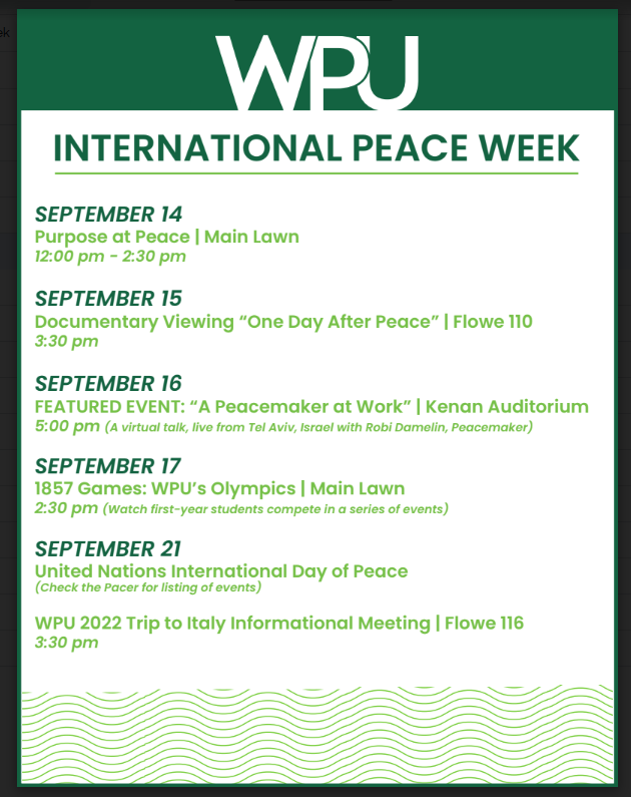
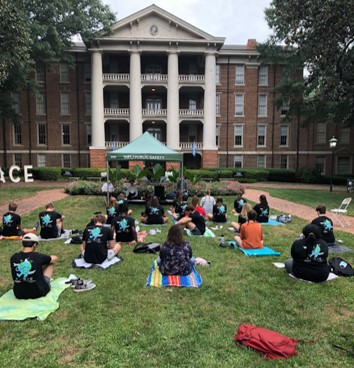
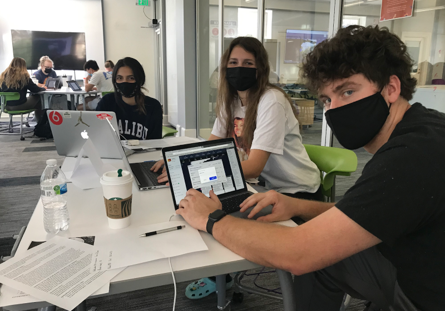
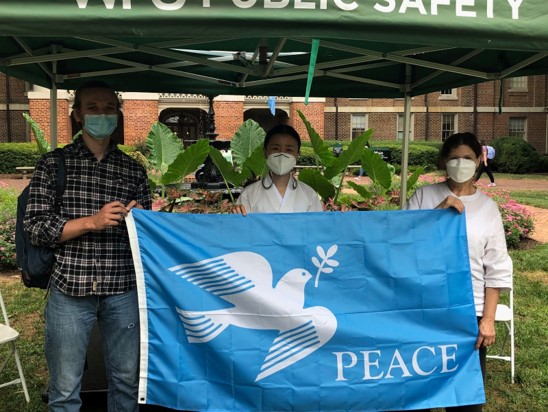
UNC Wilmington – Online Democracy Modules
UNCW used the grant to create a series of online modules in Canvas to utilize for student programs, educational initiatives, and academic partnerships with faculty and specific courses. The goal was to create a foundation for a student-led coalition for election and civic engagement efforts. Several programs that supported this initiative, included the showing of the documentary “Bring It To The Table” on campus, and a panel discussion with the authors of “Fragile Democracy – Race and Voting Rights in NC.”
Created modules include Registering to Vote, Participating in Elections, Free Speech, and Community Organizing and Activism. Development of the modules was sparked by the Office of Student Leadership and Engagement who had been hosting workshops educating around these topics and a Division of Student Affairs initiative to educate students about free speech on campus. Below is a snapshot of the module.
